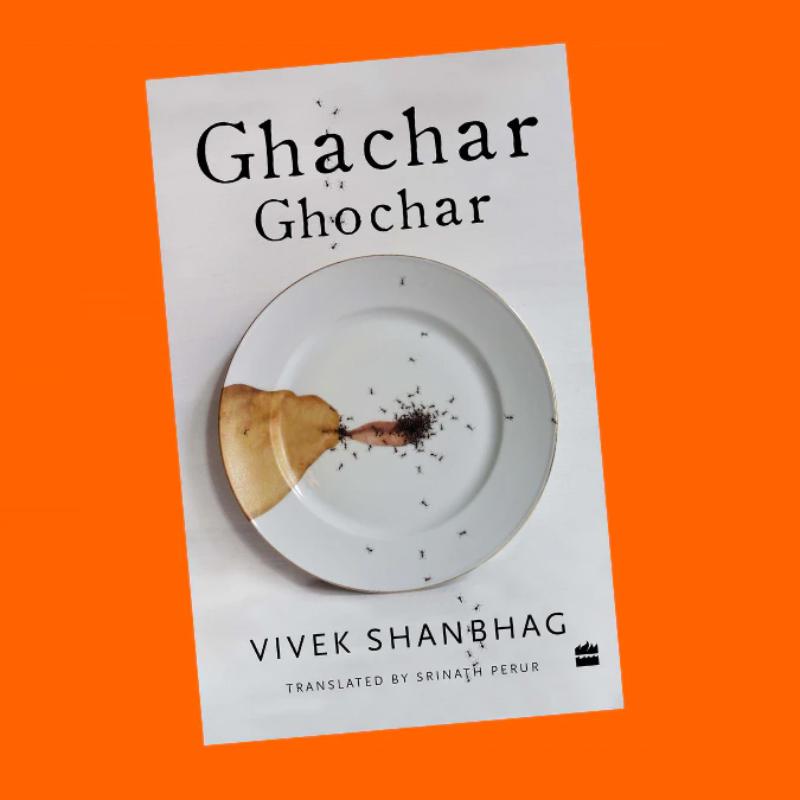
29 Jan What a pleasure to read ‘Ghachar Gochar’ by Vivek Shanbhag
After a long while, I have read a story so profoundly honest that it blurs the line between fiction and biography. GG is a story that addresses multiple human traits without being preachy or moralistic, and is without doubt, one of the finest books I’ve read on Indian rags to riches psychology, set against the vivid backdrop of values, culture and society.
About writing style and characters
The writing is exquisite—every word thoughtfully placed, each sentence seamlessly flowing into the next, creating chapters that are compact yet brimming with depth and meaning. The characters are crafted with remarkable precision, their fortitudes, fears, fortunes, and faith intricately entwined in the web of life’s complexities… what the name of the book rightfully calls “Gacher Gocher,” the colloquialism for ‘a tangled mess’.
The ending is a masterpiece in itself. It offers just enough to ignite the imagination, leaving the reader with countless possibilities while still feeling whole. This is storytelling at its best, a raw yet graceful exploration of what it means to be a mere human.
Quick synopsis
Here is a quick overview of the story, which unfortunately can be enjoyed better only when the story is read in full with its nuances and sheer brilliance:
‘Ghachar Ghochar’ masterfully captures the story of an Indian family catapulted from poverty into prosperity during an extraordinary economic boom and the cunning of a family member. While their economic upward mobility eases old struggles, it brings new tensions, and this novel beautifully explores the insecurities and fears woven into middle-class life that has become ‘nouveau riche’ rather quickly. The story unfolds through the eyes of the narrator, who spends hours at Bangalore’s iconic Coffee House, mulling over life and deciphering wisdom in the words of Vincent, a waiter with an almost Jeeve-like charm. The narrator lives with his tightly-knit “joint family”—his father (a foot salesman who lost his job), his mother (who manages the house), sister Malati (a divorcee who returned home), Chikkappa (his entrepreneurial uncle who transformed their fortunes) and Anita (his wife who came from a middle-class background with her own set of values). Their rise from a cramped, ant-infested house to a spacious home with modern luxuries initially brings joy, but Anita’s arrival (in the new luxurious house) unsettles long-standing family dynamics. Shanbhag expertly portrays the quiet tensions and suffocating closeness of a family so enmeshed that no outsider can easily belong, and as the story darkens, the cracks grow ominous. The enigmatic title, “Ghachar Ghochar,” reflects the state outside among family members and within their minds, revealing at just the right moment in this tightly woven tale. With its unresolved but cleverly crafted ending, this novel offers a vivid slice of contemporary India and lingers long after the final page.
Simply wow!
Conclusion: Who Should Read This Book (and Who Shouldn’t)
Who Should Read It
– Anyone who loves fiction and one that is short
– Readers who love human psychology, drama, and family dynamics.
– Those ready to want to read about the journey of a family that rose the social hierarchy by finding wealth while sacrificing some human values.
Who Might Not Enjoy It
– Folks who are looking for closure in the story and in characters.
– Those looking for a pleasant read—this book leans more towards making you judgmental about the characters’ motives, ethics and morals.
—
Read the review of Goodreads.com – https://www.goodreads.com/review/show/7240613358
If you liked this post, then you may consider reading Big 4 Life Questions & No Right Answers also.



No Comments